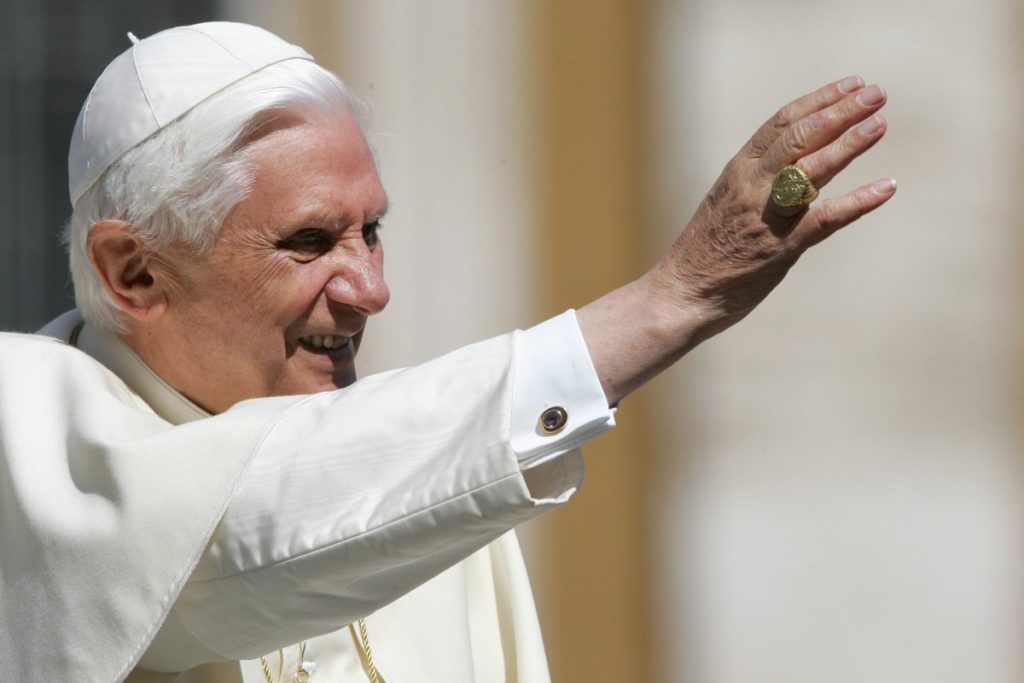I can still remember a session in systematic theology class in divinity school when Geoffrey Wainwright informed us all that he had to cancel our next class. He was headed to the Vatican for meetings with the then Cardinal Joseph Ratzinger, head of the powerful Congregation for the Doctrine of the Faith. We were all very impressed.
In my eager seminarian phase, I used to ask Wainwright all sorts of questions, both in class and out. This time, I wanted to know what one wears when meeting a cardinal in the Vatican. Why that was my question, I have no clue. I must have had this vision of the Vatican as a place where everyone, including a visiting Methodist theologian, is clad at all times in robes. So I asked him, and Geoffrey looked at me over his glasses and simply said, “A suit.”
Geoffrey Wainwright and Joseph Ratzinger, later Pope Benedict XVI, were two of the 20th and early 21st centuries’ theological giants. Both men sought in their life and in their work to resource the church with a faithful telling of the gospel, rejecting the claims of Protestant Liberalism, Marxism, various forms of liberation ideology, and the dehumanizing repercussions of secularism. Both men pointed to Jesus as the ultimate answer both to humanity’s fulfillment here in life, but also as he is the fulfillment of our eternity. Benedict’s last words, “Lord, I love you,” summarize his entire corpus.
In a recent Twitter discussion, I was asked why so many Protestant leaders were praising Benedict in the aftermath of his death on December 31st. My response was that Benedict, in his life, his writings, and in his commitment to be faithful showed the world a deep and abiding love for Jesus. There are very few writers who–perhaps especially in academic or intellectual writing–can convey their love for Christ through the written page. Episcopalian theologian Katherine Sonderegger comes to mind as one of the few who can. Former Archbishop of Canterbury Rowan Williams is another. I would add Benedict to that list. His three-volume collection of books, Jesus of Nazareth, is a tour de force in which that love is evident on every page.
What Benedict is able to do in the three volumes of Jesus of Nazareth is to present the story and message of Jesus using Scripture, the rich traditions of the church (particularly the Church Fathers) and its history of interpretation, together with modern scholarship. One of Benedict’s lasting contributions is to remind us that the modern or contemporary line isn’t always right. Like G. K. Chesterton, who warned the world of the “tyranny of the present,” Benedict reminds readers that the witness of the church throughout the ages is just as vital to know and comprehend as anything we may come up with now. While not downplaying the role of critical scholarship, he speaks to the good that “higher criticism” of Scripture has given and then reminds the reader that even this approach has its limits. He wasn’t willing to give every “higher critic” the benefit of the doubt without also critiquing the critique. In fact, he often engaged their theories and offered more compelling ones that fit the traditional narrative. What Benedict does in these volumes in particular is to remind the reader that the Jesus of Scripture is the Jesus we encounter as the Risen Lord today. There is no difference between the two.
Continue reading at Firebrand Magazine here.






Comment by John Kenyon on January 18, 2023 at 3:47 pm
Some are called to live with plenty in high places in times of peace and write about loving Jesus. Others are called to die for their love of Jesus. Who can fathom the ways of the Lord?